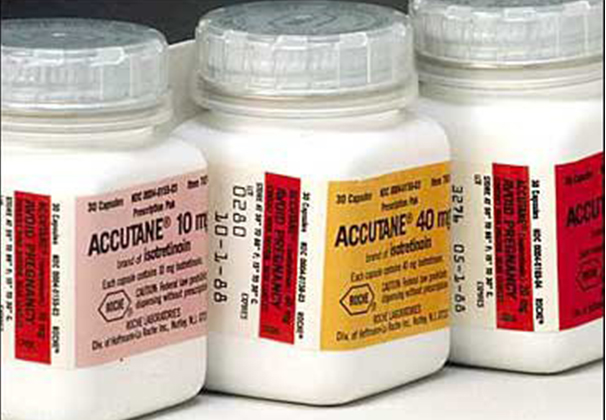
Whether in middle school, high school or college, having blemis-hes on your face is always distressing. A major factor as to why people struggle with persistent acne is because they have not found the right product for their skin type, given the vast amount of treatments on the market today.
One particularly confusing product genre is vitamin skin care. There are numerous vitamins and supplements that experts claim diminish acne, improve complexion or reverse signs of aging. Then there are some vitamins that have sparked waves of criticism, such as the once popular Accutane, also known as isotretinoin.
Discovered in 1979, Accutane was a vitamin A derivative pill that could significantly diminish acne within three or four months of use. Accutane also had a dramatically high success rate — according to acne.org, almost 95 percent of people who completed a cycle of use with the product noticed complete or partial clearance of their acne.
Such a successful treatment seemed almost too good to be true, and by the 1980s health professionals and studies warned against the use of Accutane. The drug was linked to serious side effects, such as an increased risk of depression or inflammatory bowel disease. The most detrimental and controversial was the increased risk of birth defects.
By 1988, the Food and Drug Administration estimated about 1,300 babies to be born with birth defects because of Accutane. Accutane was taken off the market in 2009. There are, however, replacement versions available today, but doctors now have requirements before prescribing these products.
Jessica Krant, founder of Art of Dermatology on Fifth Avenue and Assistant Clinical Professor of Dermatology at SUNY Downstate Medical Center, cautioned use of these Accutane-similar products.
“It’s important to only take this medication under the guidance of a board-certified dermatologist who is using the iPledge program required by federal law to help regulate its use and protect patients from problems,” Krant said.
Some people, however, believe using the products are not worth the risk.
Mika Caruncho, a junior in the College Arts and Science, was prescribed an isotretinoin treatment by her dermatologist, but after learning about the side effects, she immediately stopped treatment. The drug treated her acne effectively, so she said she considered continuing the regimen. But overall, she said she believed the potential side effects were too serious.
The Huffington Post recommends vitamin E oil products to cure dry skin and reduce acne scarring. But it cautions use if you have acne-prone skin because the heavy product can cause additional breakouts.
The body does not naturally produce a usable supply of vitamin A and E, so it’s possible to overdose when taking these vitamins orally. Topical vitamin creams are “potentially valuable,” but Krant always recommends consulting a dermatologist before using a product.
“Vitamins can definitely help treat and prevent certain skin problems,” Krant said. “But in the wrong situation, vitamins can also cause a problem. It’s important to understand that too much of certain vitamins can be dangerous for your overall health.”
A version of this article appeared in the Wednesday, Nov. 6 print edition. Helen Owolabi is a staff writer. Email her at [email protected].























































































































































